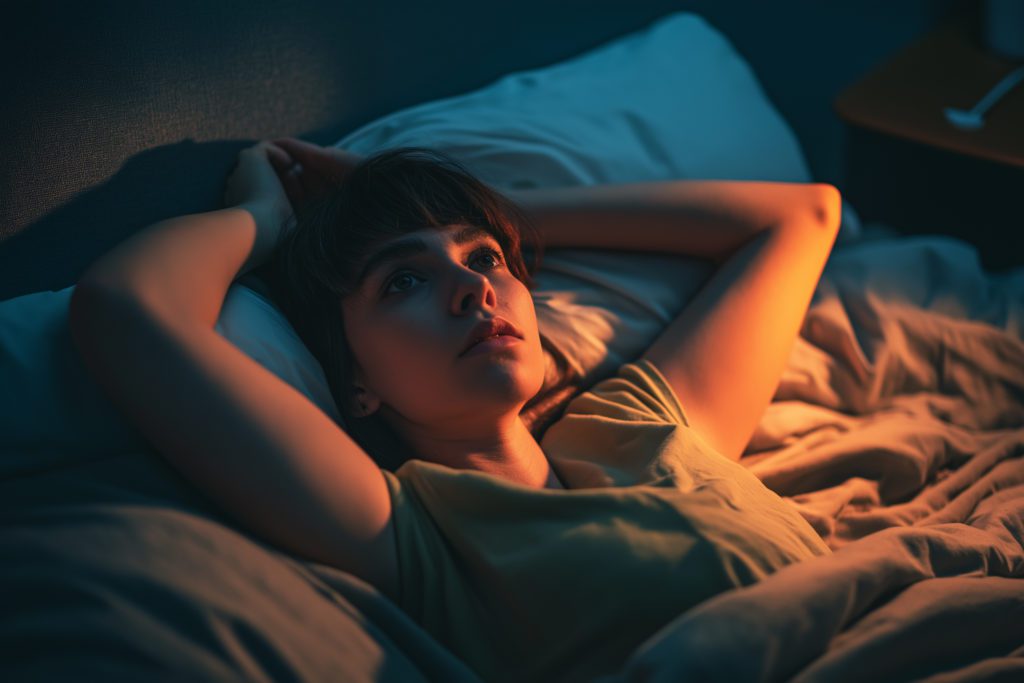
Understanding the Resting Heart Rate: What It Is and Why It Matters for Sleep
Understand the importance of your resting heart rate and how you can improve sleep quality.

If you've ever had your blood pressure taken, one of the terms that you may have heard your doctor say is resting heart rate. Your resting heart rate is a critical component of your health and a significant indicator of your overall holistic health. It can have a substantial influence on your cardiac, mental, and even sleep health.
In this article, we'll define resting heart rate, what it indicates about your health, and why it matters for sleep. By the end, you'll be an expert in resting heart rates and know precisely why having an optimal resting heart rate will ensure that you get the quality sleep that you need.
What is a Resting Heart Rate?
Your resting heart rate is best defined as the heart rate that your body maintains when it is not exercising. In essence, this is where your heart maintains a normal rhythm when you're not doing anything strenuous. This is why it can determine your overall health and heart health and even potentially be a sign of a condition or disease in the body. Your resting heart rate is responsible for your homeostasis or balance as an individual. If it is not in a normal range, then something must be out of balance.
When you are resting, your heart rate is optimal, and you feel your best and can go about your day without worry. For most adults, an average resting heart rate is generally between 60 to 100 beats per minute. Males tend to have a lower heart rate, and athletes may even have a lower heart rate than the general population. This is because athletes have a higher level of endurance and train for competitions, leading to them having heart rates as low as 30 beats per minute.
Does Your Resting Heart Rate Decrease with Age?
Your resting heart rate does decrease with age. That is why many people likely see a shift in the expectation that their doctors have of where their heart rate should be when they visit and are measured for routine physicals. For instance, the average for individuals between the ages of 18 and 45 is 110 beats per minute, while those between the ages of 45 and 60 have an upper limit of 100 beats per minute. Older adults over the age of 60 generally have a resting heart rate that reaches a maximum of 95 beats per minute.
In most cases, your resting heart rate will stay roughly the same as you age unless you take medications that can affect your heart rate and your cardiac health. It is really important to take this into account, especially for those who may take beta-blockers or calcium channel blockers. If you take any of these every day, you may have a different resting heart rate (Source: Harvard Health Publishing).
Why Does This Matter for Sleep?
It Impacts Your Sleep Quality
Believe it or not, your resting heart rate is an indicator of your overall health, and an abnormal one can actually impact your sleep quality. Your heart rate slows when you sleep, and you may reach lower levels, but when you dream during REM sleep, you have similar heart rates to when you are awake.
That’s why so many people see resting heart rates as important to indicating one’s quality of sleep: if your heart rate is abnormal, you may have abnormal sleep patterns or difficulties. Some studies have shown that your heart rate when you sleep can drop as low as 60 beats per minute, so if you have a normal resting heart rate, you’ll likely enjoy normal sleep patterns and better quality of rest (Source: Livestrong).
Resting Heart Rates Are Tied to Stress and Sleep Variability
Another reason resting heart rates matter so much for sleep is that they are tied to stress and sleep variability. Sources say that light sleep has similar heart rates to resting heart rates, while deep sleep reduces your heart rate by 20 to 30%. REM sleep can be varied based on your dreams and the amount of stress they put you under. In situations where you are under stress, you may find yourself struggling with quality of sleep and having an abnormal heart rate as a result.
An intriguing study conducted during the COVID-19 pandemic showed that 20 countries' participants illustrated altered sleep patterns, mainly because their resting heart rates differed because of their stress. Therefore, this led to significant sleep variability and even a lack of quality sleep, leading to other life challenges. If you're stressed, then your resting heart rate will show it, and so will your sleep quality.
Bottom Line: Your Resting Heart Rate is a Biomarker for Health
Your resting heart rate is vital for sleep because it's a biomarker for health. It's a significant indicator of your cardiovascular health, more specifically, so the more that you focus on sleep quality and reducing your stress in the future, the more you will encourage optimal health in the long term.
To ensure that your resting heart rate is normal, get to bed every night at roughly the same time and focus on improving your sleep quality through small adjustments over time to your nightly routine. With these changes and alterations, you can avoid losing good-quality sleep and also improve your health overall.
Regulate Your Resting Heart Rate and Improve Your Sleep
Now that you know the importance of your resting heart rate, you can take steps to improve your sleep over time. By understanding the drastic effect that your resting heart rate has on your overall health, you can enjoy optimal rest and continue to take steps to live your best life. Read more on Pillow today to learn more about improving your sleep health and ensuring that you feel rested every morning you wake up.

Written by
Marie Soukup
Marie Soukup is a seasoned copywriter, editor, and Integrative Nutrition Health Coach with a certificate from the Institute of Integrative Nutrition (IIN). With years of experience working with brands across diverse industries, Marie is passionate about holistic health and crafting compelling content.
Download Pillow
Get help
Press & News
Legal
Connect
X (Twitter)
Company
Copyright © Neybox Digital Ltd.



